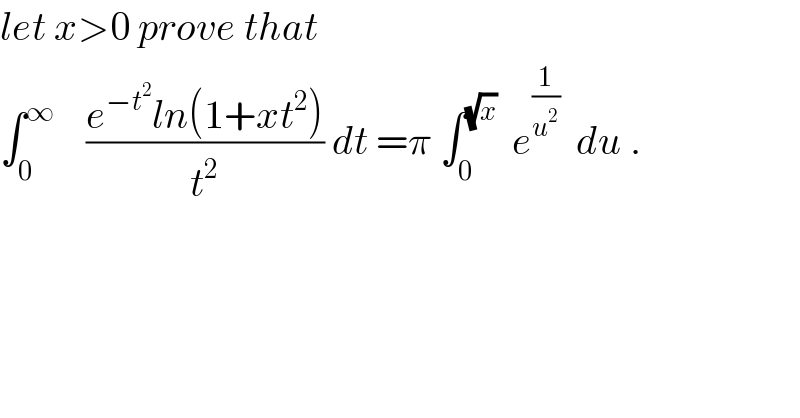
Question and Answers Forum
Question Number 42504 by maxmathsup by imad last updated on 26/Aug/18

Commented bymaxmathsup by imad last updated on 28/Aug/18

| ||
Question and Answers Forum | ||
Question Number 42504 by maxmathsup by imad last updated on 26/Aug/18 | ||
 | ||
Commented bymaxmathsup by imad last updated on 28/Aug/18 | ||
 | ||